I checked in at Naval Air Station North Island in October 2009. I was a junior captain with three deployments under my belt, including two to Iraq. I arrived much earlier than I needed to be there, in standard Marine fashion. The building was closed, so one by one, we began to congregate on a set of aluminum bleachers under a tattered parachute on the side of the building. The SERE school administrator appeared right on time to take roll. After rattling off about twenty-five or so names he got to me.
“Captain Plummer?”
“Here,” I answered.
There was a collective sigh from the junior officers in the class. As luck would have it, I was the senior ranking officer (SRO)—the leader—for the class. Anyone who knows anything about SERE school knows that this isn’t a highly coveted position.
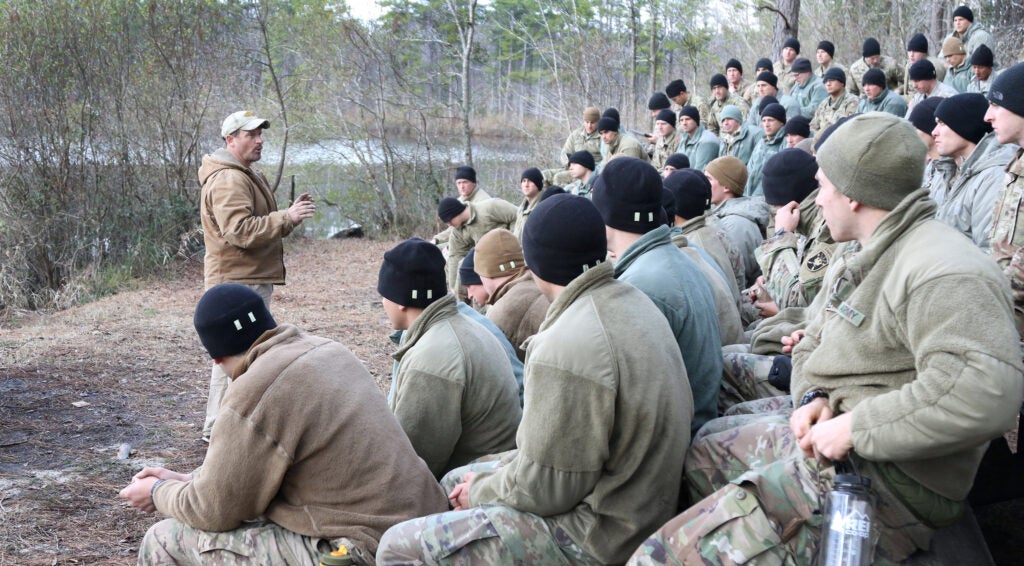
After a phase of classroom instruction, we went through a field training phase, which was subdivided into an “evasion” phase and a “captivity” phase. The evasion phase marks the beginning of the highly realistic training scenario and focuses on survival skills and evasion training. During this phase, the instructors taught us how to “live off the land.” They also kept us constantly on the move, traveling miles each day to avoid “capture” by an invisible enemy lurking in the shadows. Lucky students managed to snag a few berries along the way, and nearly everyone, myself included, resorted to eating a few things they never would have considered eating before.
Sleep was nearly as evasive as the food, and any sleep that students did get was fleeting: spent shivering, huddled with another student, on a makeshift bed of pine needles in the cold, high-desert night.
By the time we were inevitably “captured,” we were so bleary-eyed and exhausted from the cold, the lack of sleep, the lack of food, and the countless miles that we had lost all sense of time. Moreover, the lines between reality and the training scenario had all but disappeared. As our class of “zombies” struggled through the transition from a military-grade game of “hide-and-seek” to a life-and-death struggle with a real enemy, I began to truly experience the trials and tribulations of leadership as the SRO.
It’s also when I almost got kicked out.
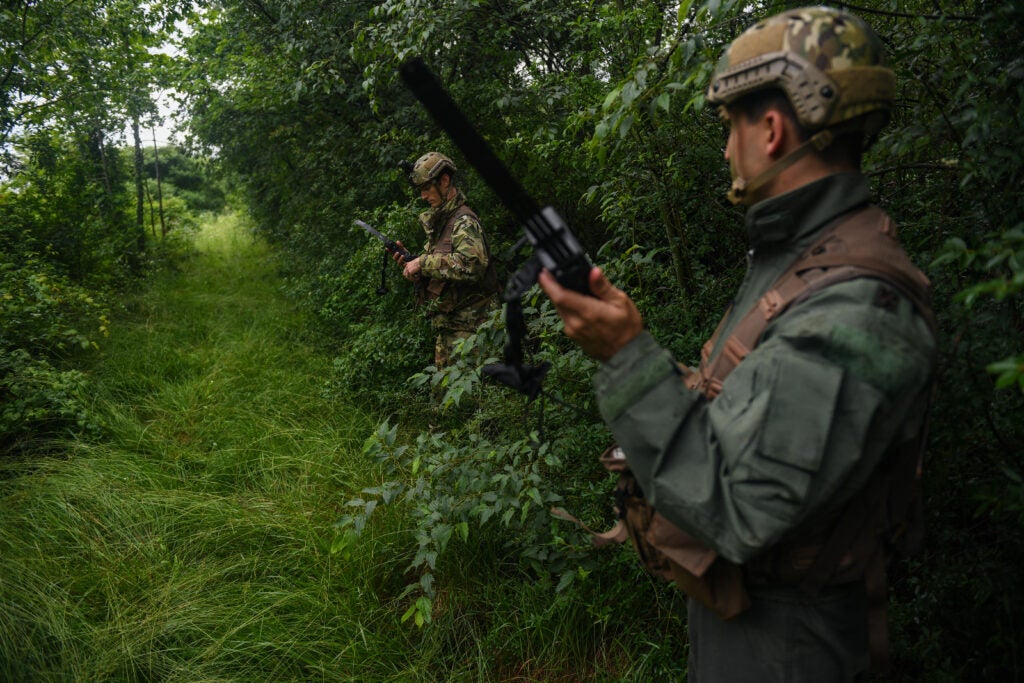
I honestly couldn’t tell you at what point during the evasion phase that it happened. The days had all begun to run together by that point. But, I do remember that we had just finished a class in which we were taught—among other things—that when you’re in a survival situation, all the rules fly “out the window.”
“Lie, cheat, steal,” they told us. “Do whatever you have to do to survive and return home with honor.”
At some point afterward, a pair of students approached me.
“We think we know how to get some food,” one of them said.
“OK,” I said. “How?”
They had seen protein bars in the side pocket of an instructor’s backpack. They had a plan.
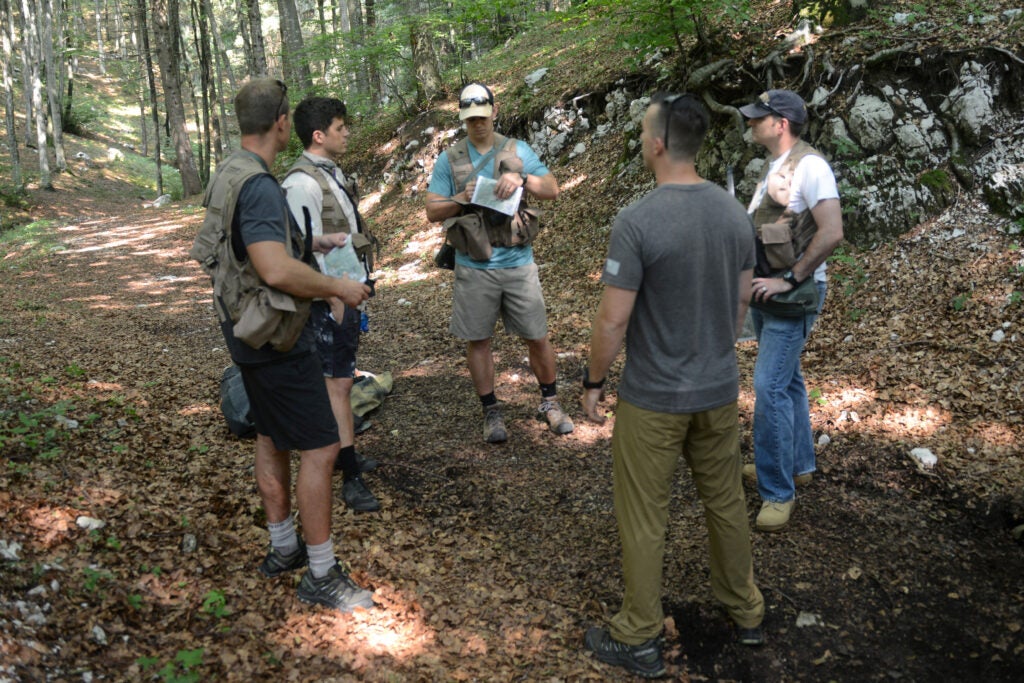
“It would be easy to steal them when it gets dark after he sets it down for one of the classes,” they told me. “What do you think?”
I mulled it over for maybe a minute before responding. I’m honestly not even sure what my decision process was. My brain was mush at this point. I’d had a total of a few hours’ sleep over the last however many days. My body ached. All I’d eaten were a few grubs and bits of a plant that was supposed to help alleviate my constant headache. I could barely see straight, and the “enemy” that was hot on our trail was starting to feel all too real.
They weren’t going to do it without my say-so. Class leader. My decision.
Lie, cheat, steal—do whatever we have to do to survive.
It made sense in my head at the time.
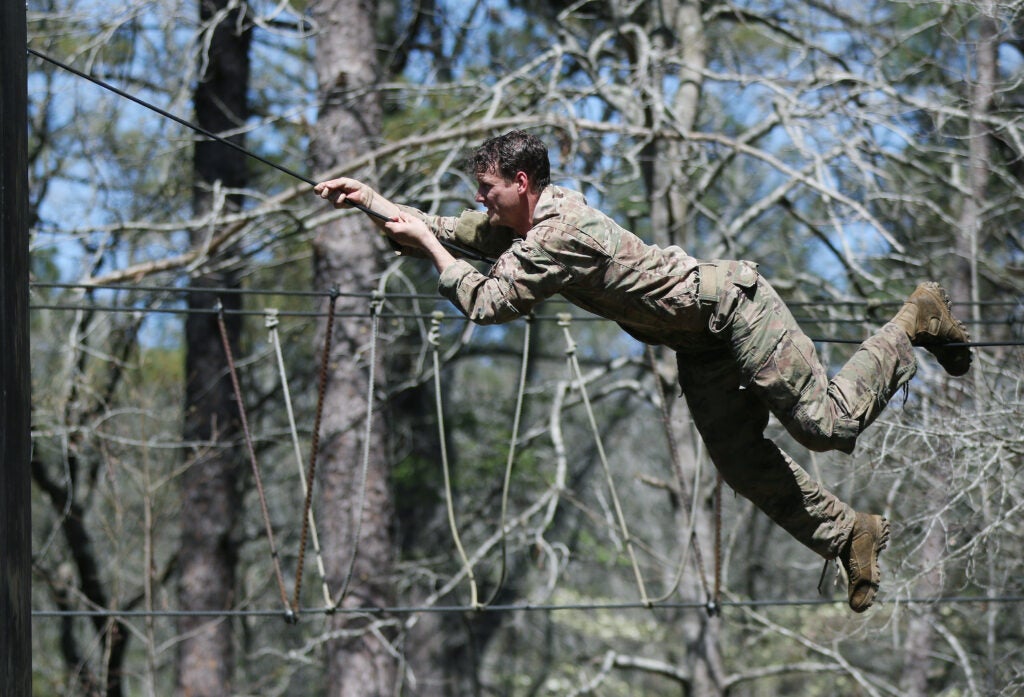
“Go for it,” I said. “but don’t get caught.”
That evening, as the instructors rousted us from a few minutes of restless sleep to evade an ever-encroaching enemy, a Navy chief in his uniform pulled me aside. Two students had been caught trying to steal from an instructor, he said—a violation of course regulations. As the SRO, he needed to inform me that they were to be dismissed from training.
Son of a bitch, I thought. I let out a deep sigh.
“I know,” I said, my shoulders sinking.
“You know?” the chief asked, incredulously.
“I know they tried to steal the protein bars,” I said. “I’m the one who told them to do it.”
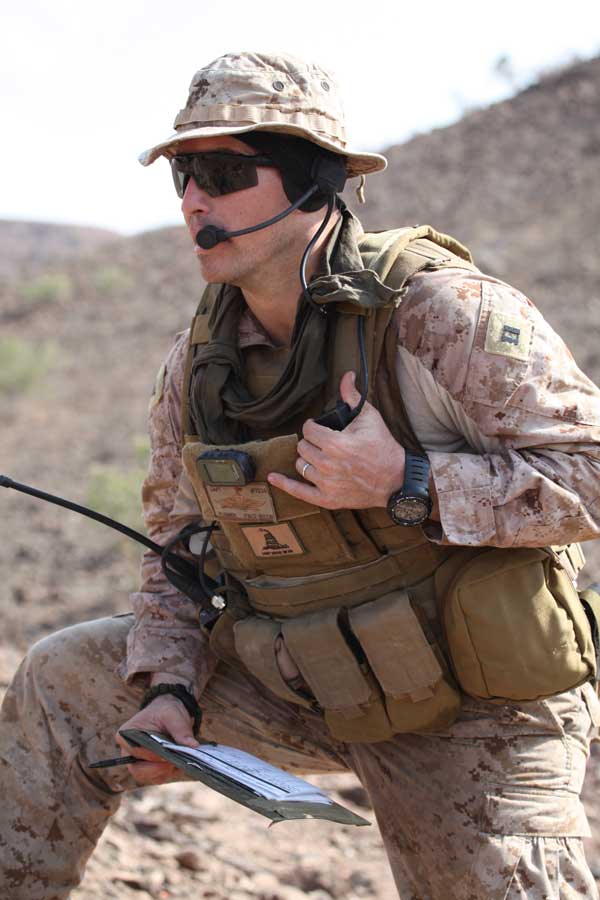
The chief’s head dropped to his chest.
“Look,” I said, “I’m not making excuses—I’m just telling you how it is. You got us out here for days on end, no food, on the run, teaching us to ‘lie, cheat, and steal’ to survive. The lines between what’s real and what’s not are so twisted at this point that I honestly don’t remember any of the rules you gave us on day one. When they came to me and asked me if they should do it, I was just thinking about ‘surviving.’ So, they did it because I told them to.”
“You gotta be shitting me, Sir,” he said. “Wait here. I have to figure this out.”
He shook his head and walked away.
Welp, I thought, as I stood in the darkness, awaiting my fate. It was my call. I’m fucked too.
In case the title didn’t spoil the surprise, I didn’t get kicked out. More importantly, neither did the other two students.
After what seemed like an eternity following that exchange, they unceremoniously sent us all back to training with little fanfare or explanation. Instead, they gave us each two five-gallon water jugs to carry as we “evaded” for the rest of the evasion phase. I was relieved, but I was too exhausted for the gravity of the situation to fully sink in until the training was over.
As we prepared to graduate, the two students approached me. They thanked me for stepping up and taking the blame. I didn’t have to, they said, but if I hadn’t, they’d have been kicked out. I thought for a moment before responding.
Throughout my career, I’ve seen and experienced a lot of examples of leadership. Many good, and many bad. Even as a young captain, I knew leaders often find themselves in situations such as this, where they have the option to shirk the blame even when they, themselves, are responsible. I wish I could say we are all altruistic enough to do the “right thing” all the time. We all know that we don’t. But how could I hold anyone else accountable if I couldn’t hold myself accountable?
More times than I’d like to admit, I’d observed that some of those around me were “climbing the ladder” not by doing the right things, but by avoiding difficult decisions and accountability altogether. It didn’t feel like “leadership” to me. It was risk aversion. I saw leaders quickly take ownership of the good things—regardless of who deserved the credit—and assign accountability for the bad whenever possible, even when they were at least partially to blame. Heaven forbid that someone else step out of line in the name of risk: Boom. Ruthless enforcement of rules.
Accountability is, and always will be, an essential virtue in the military. But it’s not a one-way street.
A good leader should be accountable for everything that happens, or fails to happen, under their charge. The good, and the bad. If you lead by example, and your example is risk-aversion, then the military suddenly becomes much less about mission accomplishment and more about individual advancement. When your subordinates see you hold yourself accountable, even if it means taking measured risks, they’ll start to take accountability for accomplishing the mission, too.
It felt, to me, as if that’s exactly what we learned in SERE school. The first rule they teach is “Don’t get caught.”
“One hundred days spent evading is better than a single day in captivity,” they reasoned.
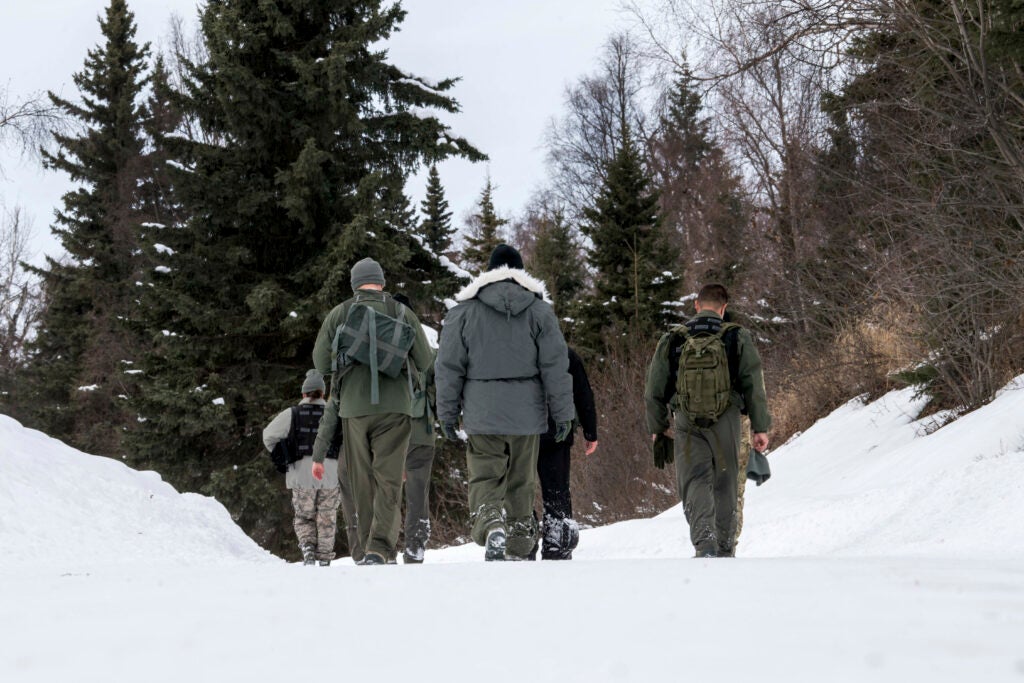
So, the initial assumption has to be that leadership expected us to break some rules and everything would be fine as long as we didn’t get caught doing it. However, in hindsight, the rule wasn’t really about stealthily avoiding detection. It was about leadership. When the two students got caught, it’s not because they broke the first rule. It’s because I failed them as a leader. My first failure was in allowing them to go into a situation where “getting caught” was a possibility in the first place. My second failure was that I thought “Don’t get caught” was sufficient guidance. I failed them because I sent them into a situation where there was a real risk and I didn’t even ensure there was a solid plan to achieve the mission.
It makes sense, right? We were training to survive, escape, and evade an enemy where “getting caught” isn’t an option. But, training or not, leadership is the only option.
It doesn’t matter whether you are sending someone into harm’s way, on liberty, or to “tactically acquire” something. You owe it to them to set them up for success. In most cases, that is as simple as making sure they know the expectations for what they should or shouldn’t do. But this doesn’t just mean telling them. Mentorship is continuous. Show them. Lead by example. Inspect what you expect. Squash double standards, and be the type of leader they would want to follow into hell, not into a sleazy bar.
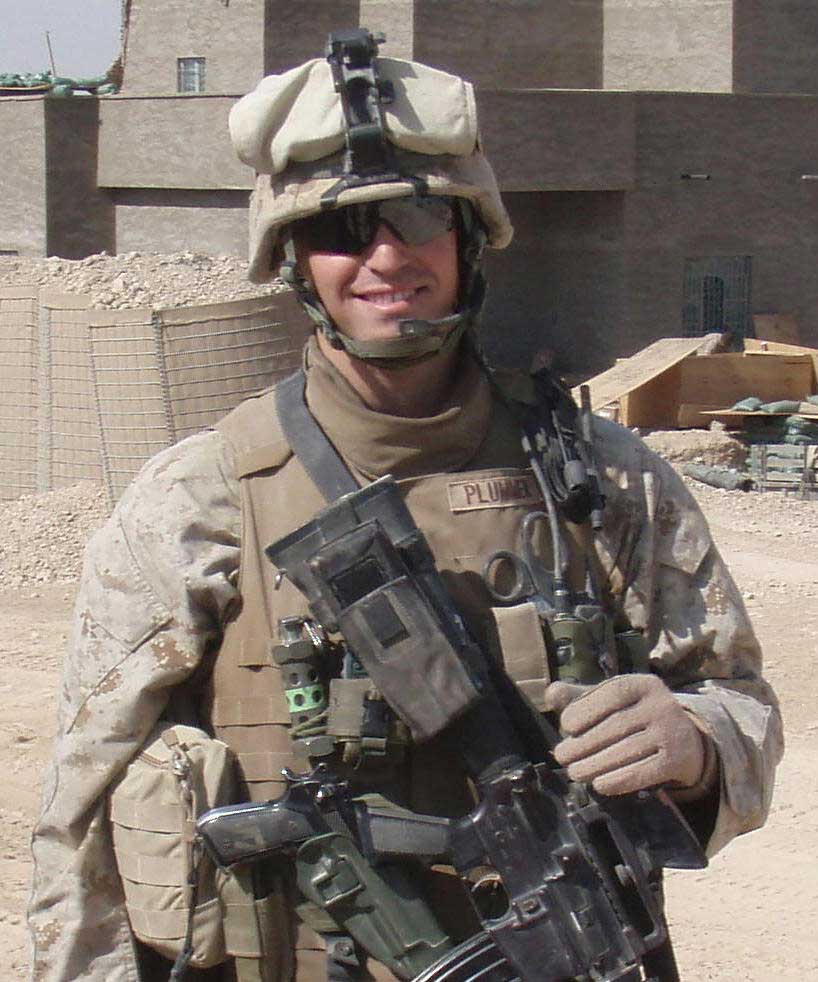
We carried 10 excruciating gallons of water for miles. It was punishment for my bad leadership on top of breaking the first rule, but it was much better than what they could have done to us. They never told us why they didn’t kick us out, but I like to think that maybe my explanation of our actions gave the course leadership some perspective that led them to reconsider the seriousness of our conduct and an effective punishment.
To me, that also feels a bit more like real leadership—and avoided the military’s infamous habit of heavy-handed punishment without regard to nuance or empathy, in this case, by booting us out. I’m not suggesting there aren’t some nails that need hammering sometimes. But, when the only tool you have is a hammer, everything begins to look like a nail, and the result is a culture that repeatedly makes decisions because “that’s the way it’s always been.” Many military leaders are chronically deficient at taking perspective into account. You need look no further than the Marine Corps’ tattoo policy to see a prime example of this short-sightedness. We’re so concerned about looking “professional.” Meanwhile, we can’t seem to figure out how to prevent sexual assaults, deadly training accidents, or the ineffective chains of command that exacerbate these issues.
Talk about a lack of perspective.
As leaders, we should always take the time necessary to ask the question, “Why?” Why did this happen? Why did he or she do this? Why am I implementing this policy? Why am I making this decision? We don’t ask “why” because we’re looking for reasons to not make that hard decision. Military leaders are rarely averse to hammering nails when necessary. But we ask “why” because the perspective we gain by asking the question is pivotal in helping us make the right decisions regarding what to do about it.
There is absolutely a time and place to do what we’re supposed to do and “what we’ve always done.” But there is never a wrong time or place to do what is right. For a leader, sometimes all it takes is a little perspective to know what right looks like.
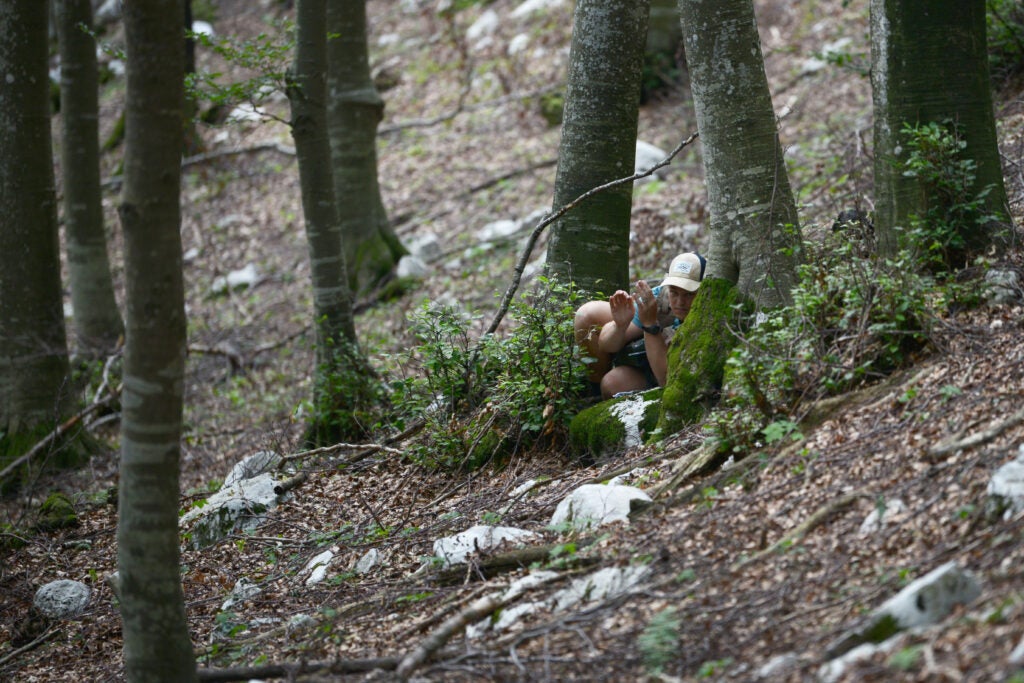
My leadership failures almost got me, in addition to the other two students, kicked out of SERE school. The career implications would have been significant for all three of us. I could have avoided the risk to my career altogether if I’d kept my mouth shut. But, if I’d done that, it would have been yet another leadership failure that I just couldn’t live with.
“Well,” I told the students after they thanked me for ratting myself out. “It was my call, so I just owned it.”
I let that sink in, and then, with a smile, followed up with, “But I told you not to get caught!”
I do not believe for one minute that I did anything extraordinary. I simply did the right thing in a crappy situation of my own making.
As I was the class leader, the SERE school leadership gave me the opportunity to address the class at the short graduation ceremony. I had expected the hunger and the exhaustion. I had expected to learn how to eat snakes and catch squirrels with traps fashioned from a tree branch and the elastic from my undershorts. I had expected to navigate using the sun and the stars, and to get slapped around by someone deriding me in a bad Russian accent. But I hadn’t realized how much I would learn about leading fellow service members to make potentially life-saving decisions, as well as to take responsibility for my own actions.
SERE school had held us “captive” for long enough, so I kept my remarks short.
“When I got here, I knew how to be a leader,” I told the class at graduation. “But I’m leaving with a better understanding of what leadership really means.”
+++
Joshua Plummer is a retired Marine Corps Intelligence Officer now studying law at Wake Forest University School of Law. Plummer holds a Bachelor’s Degree from Purdue University.
Editors Note: This article first appeared on The War Horse, an award-winning nonprofit news organization educating the public on military service. Subscribe to their newsletter.
More great stories on Task & Purpose
